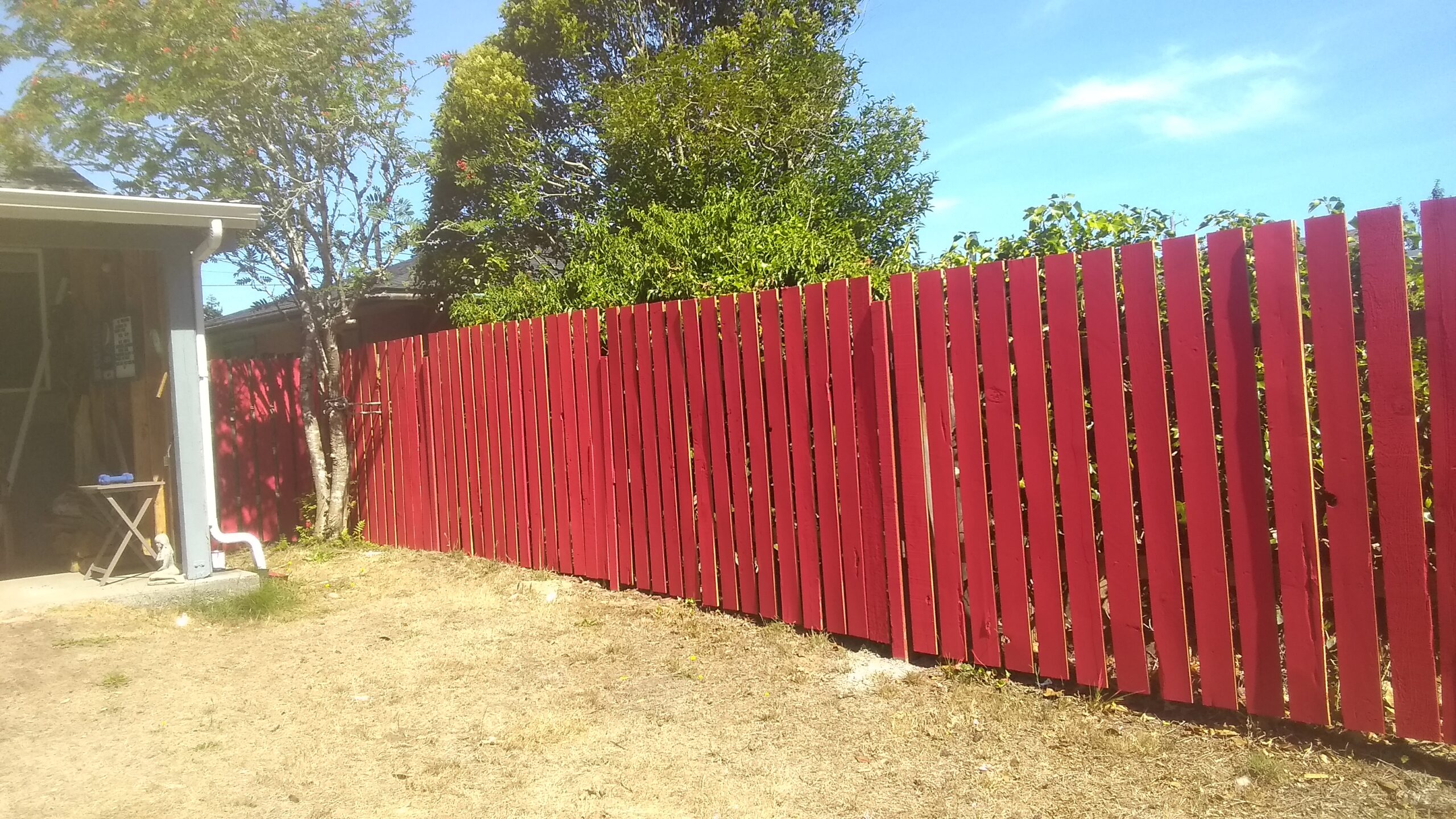Building my Fence
After moving into my new home in the Empire District of Coos Bay, I needed to address a home improvement issue with alacrity: the rotting and ivy-chocked backyard cedar fencing that verged on collapse because no one had performed any maintenance on it since 1959, the year the house was built.
For now, the fence could contain Elmer, that is after I patched it here and there. It all looked unsightly and half ass.
Within days I’d arranged for bids to replace the entire 200 feet. Bid one: $15k. Bid two: $$9.5k. Bid three: dude never showed up. Trump’s tariffs on Canadian lumber were about to kick in so the price was going up for sure—maybe 20%.
The estimates shocked me. I could afford them, but sensed the fencing pros had landed themselves a city slicker sucker and were out to gouge me. After the bids, I surveyed the decaying fence and thought: do it yourself! You have some fencing experience obtained from stints as a caretaker of a national wildlife refuge and a Port Orford construction job. You have most of the tools and could borrow the rest from your former Port Orford construction boss. In fact, why not have him walk you though how to repair here and rebuild there. But do you have the carpentry talent to complete the project? And what about the physical stamina at 61 years of age? Sure you walk and run the husky seven miles a day but that’s not the same as hauling lumber, wielding a post hole digger, poring concrete, sawing (by hand) and hammering nails.
Fuck it! I would do it myself. If Thoreau could build a tiny cabin (from a kit, a fact not widely known) then I could repair and rebuild 200 feet of cedar fencing.
And thus the project began.
It took a month, a dozen trips to the lumber yard, digging post holes, pouring the concrete. Measuring, tearing down two sections and starting over, exhaustion, muscle spasms, splinters, and once working at eight in the morning while drinking red wine because that’s what fucking fence contractors can do! Drink on the fucking job!
During the building, I thought a lot about my dad and all our endless hours of manual labor together. He taught me how to work, work hard, with purpose and alacrity. This knowledge has served me well in life, and in fact helped save my life a decade ago.
When I pounded the last board into place, I stepped back, then stepped farther away to admire my handiwork: it was 75% of professional grade. Good enough for sure.
I kept telling Elmer: look at my master carpentry!
The best outcome: my carpentry improved every day, then regressed, then improved again. I reacquainted myself with the metaphor of carpentry as it pertains to writing: be willing to tear down something rickety; think about a tricky story before your write it up and consider different ways of doing it; take your time and don’t rush the job; walk away when frustration hits and examine the problem the next morning. Be willing to tear something down.
Carpentry is also a great metaphor for hos to conduct personal relationships.
Given time, would I have become a truly master carpenter? No. It’s like my guitar playing. Serviceable, a means to an end.
But I love knowing that I learned so much and strictly from trial and error.

